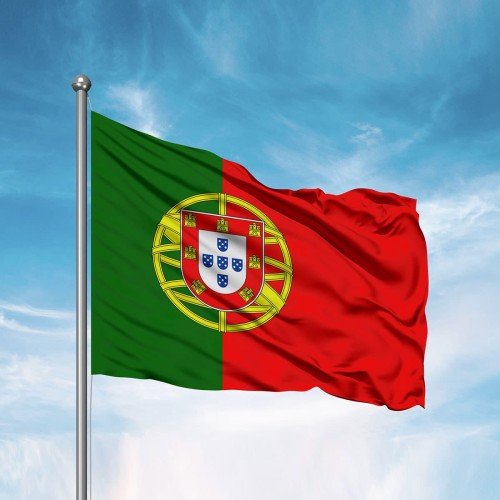
Portuguese is a Romance language spoken by over 250 million people worldwide, primarily in Portugal, Brazil, and several African countries. It is a beautiful language that is rich in culture, history, and tradition. In this blog post, we will explore some interesting facts about the Portuguese language.
Origins
Portuguese evolved from Latin, the language spoken by the Romans, who occupied the Iberian Peninsula from the 2nd century BC to the 5th century AD. Over time, the language evolved into several dialects, including Galician-Portuguese, which became the basis for modern Portuguese.
Portuguese evolved from Vulgar Latin, the language spoken by the Romans who occupied the Iberian Peninsula from the 2nd century BC to the 5th century AD. Latin was brought to the region by Roman soldiers and settlers, and it gradually replaced the native Celtic and Iberian languages. Over time, Latin evolved into several dialects, including Galician-Portuguese, which became the basis for modern Portuguese. Galician-Portuguese was spoken in the northwest of the Iberian Peninsula, covering modern-day Portugal and Galicia in Spain. It was heavily influenced by the Moors, who occupied the region for several centuries, and it also borrowed words from other Romance languages, such as French and Occitan.
Pronunciation
Portuguese has a unique sound, with many nasal vowels and consonants. One of the most distinct features of the language is the use of the tilde (~) to indicate a nasal vowel, as in the word "Português."
Portuguese pronunciation can be quite challenging for non-native speakers, as it has many unique sounds and features. Here are some key points to keep in mind:
-
Nasal vowels: Portuguese has several nasal vowels, which are indicated by the tilde (~) over the vowel. For example, the word "Português" (Portuguese) has a nasal "e" sound.
-
Diphthongs: Portuguese has many diphthongs, which are two vowel sounds pronounced together. For example, the word "leite" (milk) has a diphthong "ei".
-
Consonants: Portuguese has several consonant sounds that may be unfamiliar to non-native speakers, such as the "lh" sound, which is pronounced like the "li" in million, and the "ão" sound, which is pronounced like the "own" in crown.
-
Stress: Portuguese words are stressed on different syllables depending on the word. It is important to learn the correct stress patterns to ensure proper pronunciation.
Overall, mastering Portuguese pronunciation takes time and practice. Listening to native speakers, watching videos, and practicing with a language tutor can all be helpful in improving your pronunciation skills.
Variations
Portuguese has several variations, including European Portuguese, Brazilian Portuguese, and African Portuguese. While these variations share many similarities, there are also many differences in vocabulary, pronunciation, and grammar.
Portuguese pronunciation can be quite challenging for non-native speakers, as it has many unique sounds and features. Here are some key points to keep in mind:
-
Nasal vowels: Portuguese has several nasal vowels, which are indicated by the tilde (~) over the vowel. For example, the word "Português" (Portuguese) has a nasal "e" sound.
-
Diphthongs: Portuguese has many diphthongs, which are two vowel sounds pronounced together. For example, the word "leite" (milk) has a diphthong "ei".
-
Consonants: Portuguese has several consonant sounds that may be unfamiliar to non-native speakers, such as the "lh" sound, which is pronounced like the "li" in million, and the "ão" sound, which is pronounced like the "own" in crown.
-
Stress: Portuguese words are stressed on different syllables depending on the word. It is important to learn the correct stress patterns to ensure proper pronunciation.
Overall, mastering Portuguese pronunciation takes time and practice. Listening to native speakers, watching videos, and practicing with a language tutor can all be helpful in improving your pronunciation skills.
Vocabulary
Portuguese has a rich vocabulary, with many words borrowed from other languages, including Latin, Arabic, and French. In fact, Portuguese has more words borrowed from Arabic than any other Romance language.
Grammar
Portuguese has a complex grammar system, with verb conjugation being one of the most challenging aspects of the language for non-native speakers. However, once you master the rules, Portuguese grammar can be quite logical and consistent.
Importance
Portuguese is an important language for international business, tourism, and diplomacy. With Brazil being one of the largest economies in the world, knowing Portuguese can be a valuable skill for anyone looking to do business in South America.
Culture
Portuguese culture is rich in history, literature, music, and art. From the works of Fernando Pessoa to the music of fado, Portuguese culture has a lot to offer.
In conclusion, Portuguese is a fascinating language with a rich history and culture. Whether you are interested in learning the language for personal or professional reasons, there are many resources available to help you on your journey. With its unique sound and complex grammar system, mastering Portuguese can be a rewarding experience that opens up a world of new opportunities.







